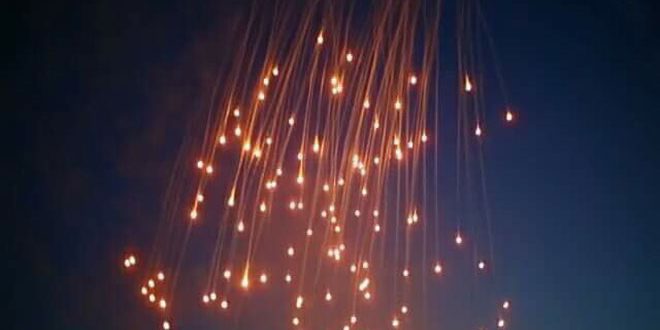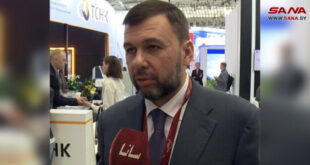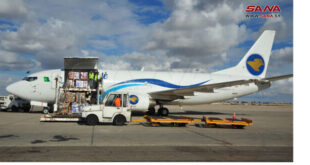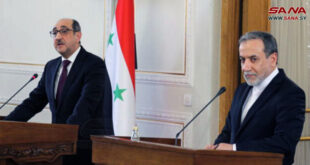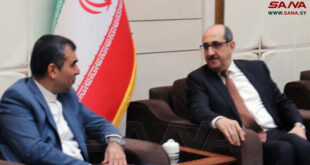Washington, SANA – Human Rights Watch strongly slammed the use of artillery-delivered white phosphorus by the US-led coalition in Raqqa province in Syria under the pretext of fighting ISIS, urging it not to use it as an incendiary weapon to attack personnel or materiel in populated areas, even when delivered from the ground.
Steve Goose, arms director at Human Rights Watch, said in a report published on the website of the Organization “No matter how white phosphorus is used, it poses a high risk of horrific and long-lasting harm in crowded cities like Raqqa and Mosul and any other areas with concentrations of civilians,” adding that US-led forces should take all feasible precautions to minimize civilian harm when using white phosphorus in Iraq and Syria.
On June 9, 2017, the US-led coalition acknowledged using the internationally banned white phosphorus munitions in its strikes in Raqqa. A day earlier, the coalition carried out 25 raids on residential neighborhoods in the city of Raqqa, and in several of which it used the white phosphorus rounds, according to social media activists. The airstrikes led to the death of 17 people including 12 in a raid on an internet café in al-Jazra area near the Euphrates River.
“Horrific civilian harm from previous use of white phosphorus has generated public outrage and this latest use of white phosphorus underscores the urgent need for states to strengthen international law relating to incendiary weapons,” Goose said.
The Organization noted that in both Mosul and Raqqa, the US-led forces are using US-made M825-series 155mm artillery projectiles containing 116 felt wedges impregnated with white phosphorus, which ignites and continues to burn when exposed to the air.
The organization stressed that attacks using air-delivered incendiary weapons in civilian areas are prohibited under Protocol III of the Convention on Conventional Weapons (CCW), noting that while the protocol contains weaker restrictions for ground-launched incendiary weapons, all types of incendiary weapons produce horrific injuries, adding that Protocol III applies only to weapons that are “primarily designed” to set fires or cause burns, and thus some countries believe it excludes certain multipurpose munitions with incendiary effects, notably those containing white phosphorus.
Since the US-led international coalition was establishment in August 2014, it has been carrying out thousands of airstrikes and committing massacres in several areas including the provinces of Deir Ezzor, Aleppo and Raqqa under the pretext of fighting ISIS.
R. Milhem / Hazem Sabbagh
 Syrian Arab News Agency S A N A
Syrian Arab News Agency S A N A
